Jonas Mosa Gwangwa was a pioneering South African jazz trombonist, composer, and political activist whose music intertwined with the struggle against apartheid, earning him a legacy as a cultural ambassador. His innovative sound and commitment to social justice resonated through collaborations with legendary musicians and impactful works that highlighted the power of music as a tool for resistance.
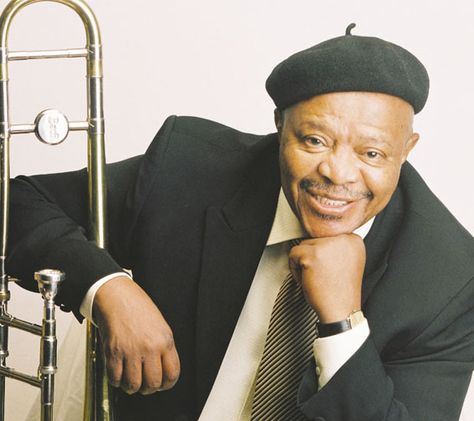
Jonas Mosa Gwangwa was a significant South African jazz musician, composer, arranger, and trombonist whose career spanned several decades and whose work was deeply intertwined with South Africa's political struggle against apartheid.
Jonas Mosa Gwangwa was born in 1941 in Orlando East, Soweto, South Africa. His musical journey began in the 1950s when he joined the Father Huddleston Band at St Peter's College in Johannesburg. Though he initially hoped for a clarinet, he was given a trombone instead, an instrument that would become his signature throughout his career.
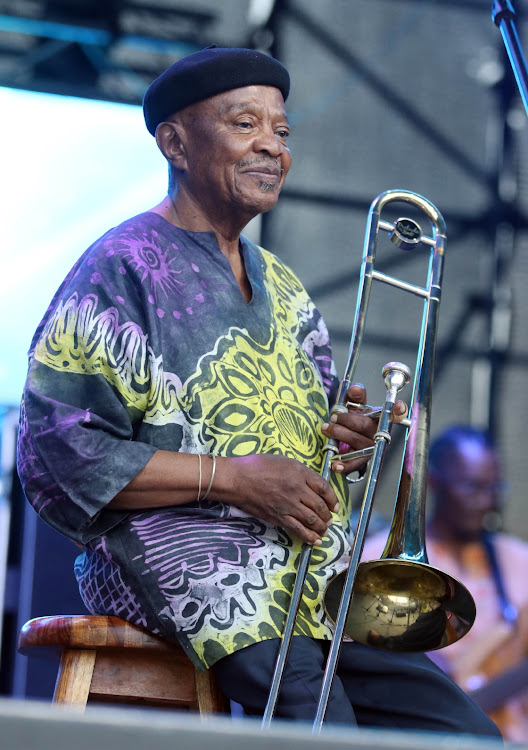
As a young musician, Gwangwa was mentored by Alto Saxophonist Kippie Moeketsi, who played a crucial role in shaping his musical development. His early musical influences came from various sources, including family, school lessons, and American jazz musicians he watched at the Odin Cinema in Sophiatown. He adopted his trademark black beret from jazz legend Dizzy Gillespie, describing himself as "this little bebopper."
Gwangwa's rare trombone skills quickly caught attention in the South African jazz scene. He joined elite groups including:
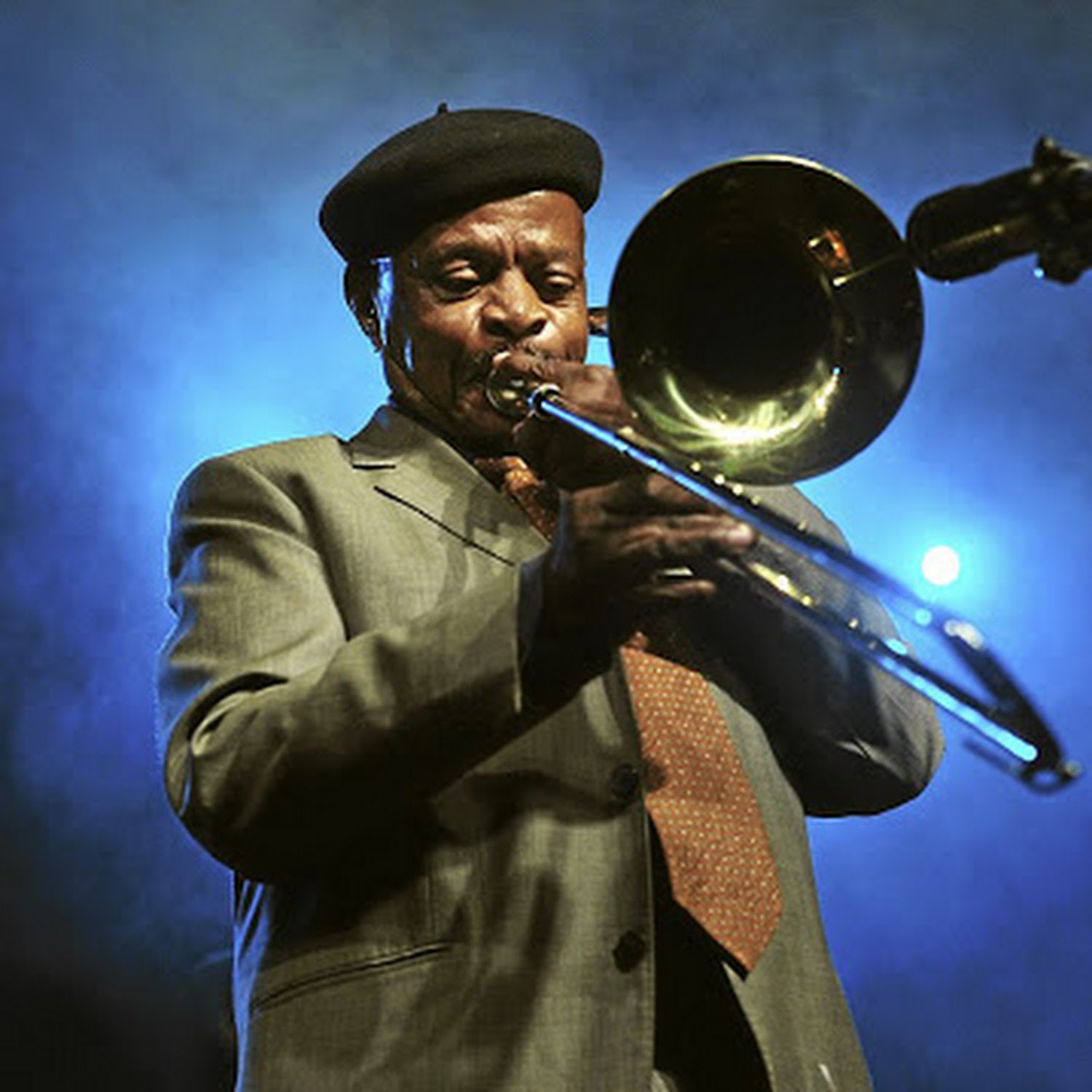
Gwangwa gained international recognition when he was featured in the "Sound of Africa" concert in the United States. Two years later, he returned for "The Main Event," a tour that also featured renowned saxophonist Hugh Masekela. After completing a European tour with the King Kong production (which also featured Miriam Makeba), Gwangwa relocated to the United States due to South Africa's oppressive political environment in the 1960s. During his time in America, he enrolled at the Manhattan School of Music to further develop his musical expertise.
Politics profoundly shaped Gwangwa's life and music. Before the closure of St. Peters due to the 1954 Bantu Education Act, the Father Huddleston Band had played at the adoption of the Freedom Charter in Kliptown. Gwangwa himself noted that "nobody separated the music from the politics."
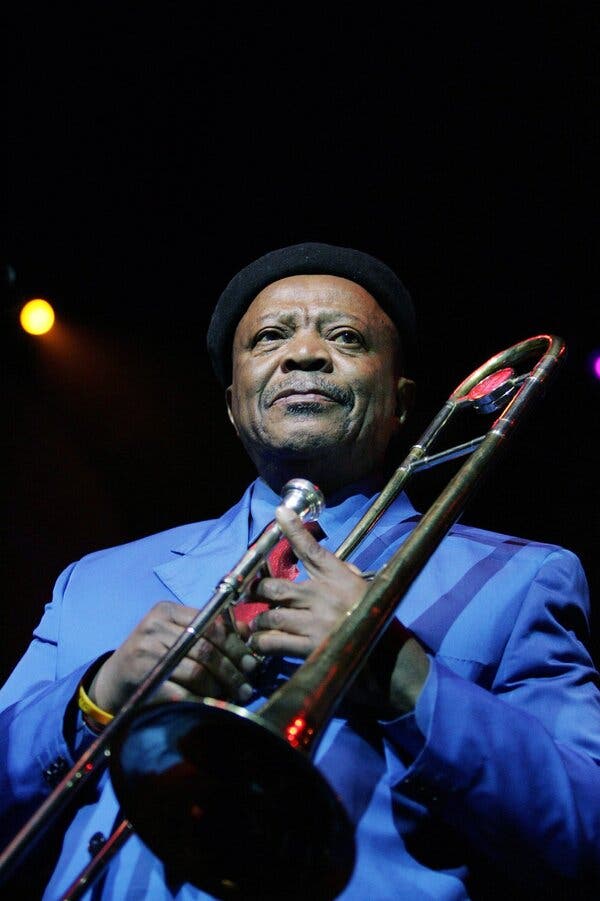
The political situation in South Africa forced Gwangwa into exile, where he spent fifteen years in the United States. During his exile, he served for ten years as the musical director of the African National Congress's (ANC) ensemble tour called "Amandla," which used music as a form of protest and resistance against apartheid.
While in exile in Botswana, Gwangwa developed the Medu band Shakawe, which included both Batswana and South African players, as well as aspiring local Botswana Defence Force musicians and visiting South African stars. Through Shakawe, Gwangwa emphasized two important aspects: reconnecting with indigenous roots to create socially meaningful music and fostering a collective working style that gave everyone a voice.
Gwangwa's talents extended beyond performance to composition and arrangement. His most notable compositional achievement came in 1987 when he collaborated with George Fenton to create the original score and theme song for Richard Attenborough's film "Cry Freedom." This work earned him numerous nominations, including Academy Award, Grammy, BAFTA, and Golden Globe nominations, and won the Ivor Novello and Black Emmy awards.
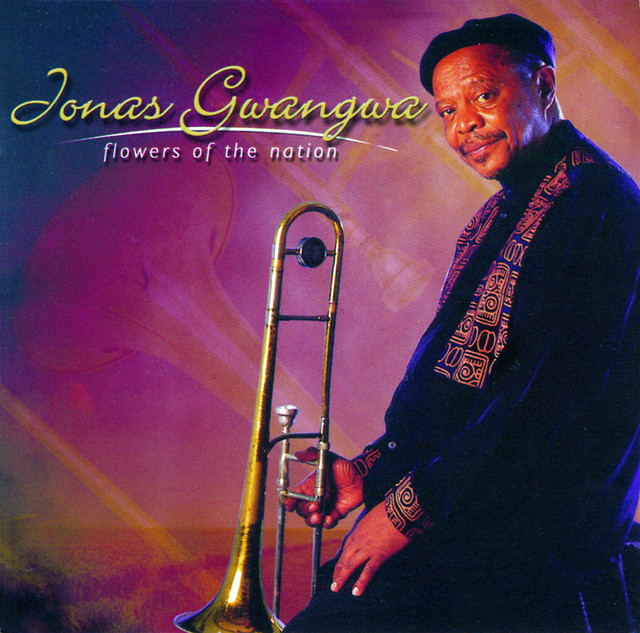
After returning to South Africa in 1991, Gwangwa continued his compositional work, creating theme songs and soundtracks for television shows like the soap opera "Generations" and the movie "Othello." Throughout his career, he received numerous awards for his musical contributions.
Gwangwa's musical journey connected him with many legendary musicians. Despite restrictions that made it illegal for black people to congregate and practice their craft in apartheid South Africa, he played with virtually every important band of his era and collaborated with icons such as Kippie Moeketsi, Abdullah Ibrahim, Johnny Gertze, and Makhaya Ntshoko. Internationally, he worked with renowned musicians including Ahmad Jamal, Herb Alpert, Hugh Masekela, Miriam Makeba, and Caiphus Semenya.
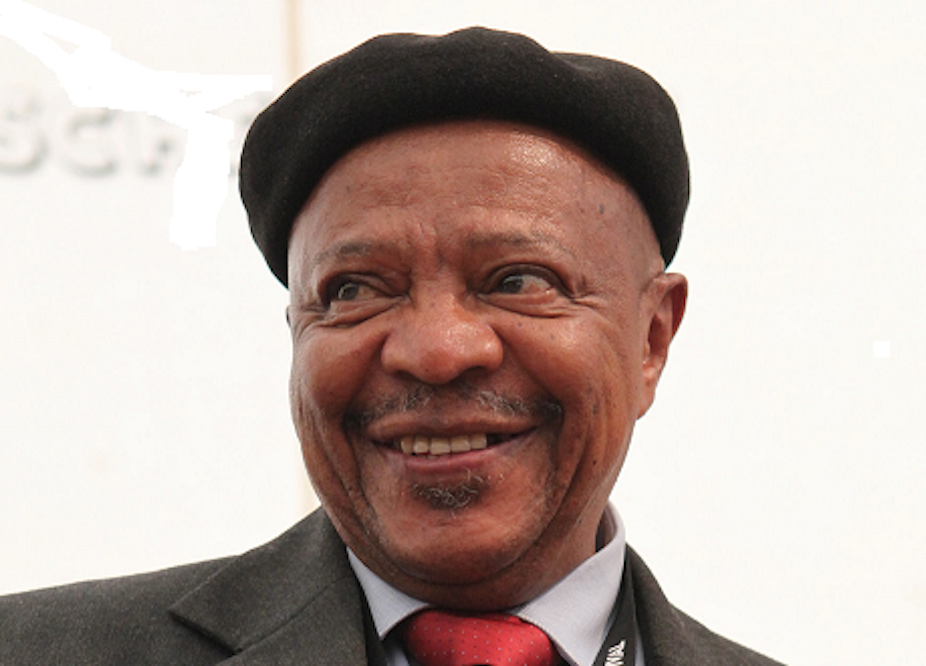
His lifework is perhaps best represented by his role as composer, arranger, and musical director of the Amandla Cultural Ensemble, which chronicled the role of music as a means of protest and survival through more than 40 years of struggle against apartheid.